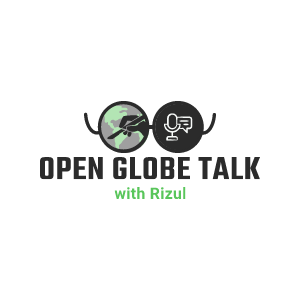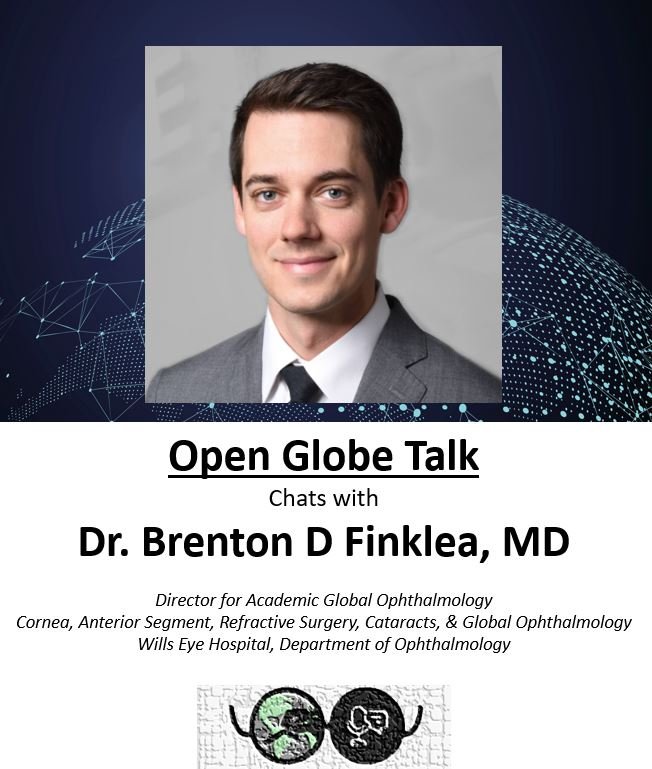February 12, 2022
Episode 19: Dr. Brenton D Finklea, MD
A discussion on
“Wills Eye Academic Global Ophthalmology: A program leadership perspective”
Dr. Brenton Finklea, MD
In this exciting episode, we are joined by Dr. Brenton Finklea who is the co-director with Dr. John Anhalt of the Wills Eye Center for Academic Global Ophthalmology. He obtained his medical education from the University of Virginia and then subsequently conducted ophthalmology residency training at the Wills Eye Hospital. Post-residency, he obtained fellowship training in 2 areas. One in Cornea, External Diseases, and refractive surgery from Duke University and the other in Academic Global Ophthalmology from the Wills Eye Hospital. As a trainee he has received multiple awards for his outstanding performance, ranging from intern of the year and the James Shipman Award for best resident paper presentation. We are very fortunate to have a guest like him share the program-related aspects of a global ophthalmology fellowship.
In previous episodes, we have explored global partners such as RIIO and Orbis. This time we have a chance to hear from their US partner institute at Wills!
Key discussion points:
Journey to ophthalmology and global health
Shadowing a pediatric ophthalmologist during medical school
Unite for Sight work in Ghana
Domestic service work
WIRE: Wills International resident experience
PGY4 engage in health care projects globally
Importance of starting early!
Making the choice of fellowship
Importance for subspecialty training
Order of pursuing subspecialty training and global ophthalmology
Pros and cons
How was the process like having to apply for cornea fellowship concurrently while completing the global ophthalmology fellowship first?
Just be very open about your passions, pursuits. Possible virtual meetings and meetings at academy when able to be in the States
Wills eye Global Ophthalmology residency program
6 months at Wills and 6 months abroad
Country partners in places such as: Rwanda, Burundi, Sierra Leone, India, and Haiti
Flexible fellowship: depends on projects and what fellows want to achieve in the career they want to pursue
Global Health is a small community. Make connections globally and locally
Global Ophthalmology Fellowship Peer groups
Meeting all global ophthalmology fellows in the US for the first time in-person
Starting the position as a co-director shortly after fellowship, what are some things for others who would like to start a fellowship program at other programs?
Financial sustainability
Partner sites with real clearly defined goals for viability
Program should center around partners
Fellow goal: acquire skills that are coveted and not easily obtained in the States
Accountability for influence gradient
Fellows should act as supporting role to the lead role which is the partner institute
Importance of checks and balances
Clear line of communication between fellowship program director and partner institute director
Feedback and open communication without fear of repercussions
Communication with fellows
Contingency plans in case cell signal and such are hard to access
Innovations in Global health
What type of fellow would fit best in a global ophthalmology fellowship (specifically at Wills)?
Hit the ground running
Independent, motivated, passionate, creative, and confident
Episode-based Resources:


